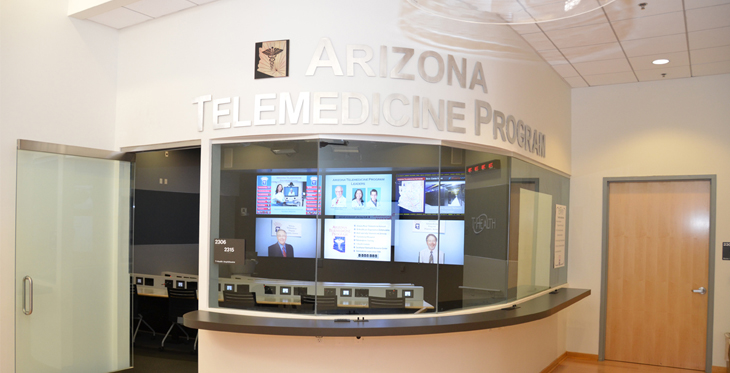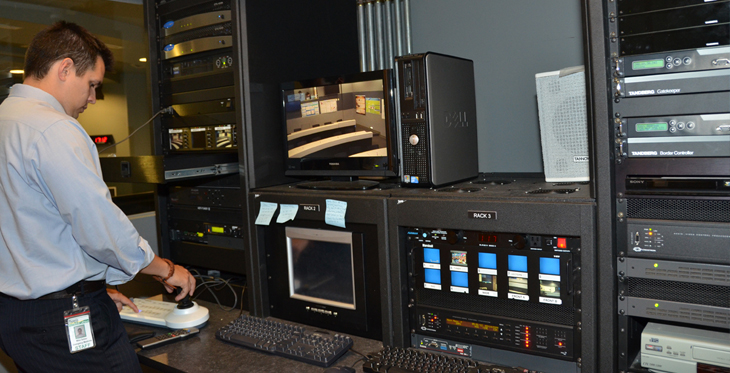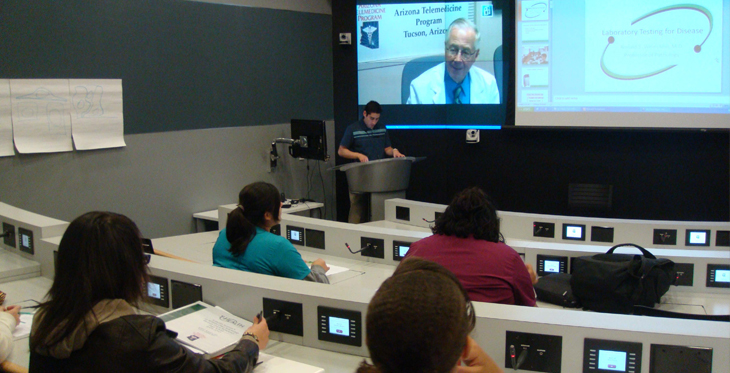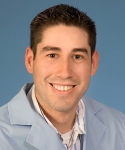Arizona Telemedicine Program's T-Health Institute opened in 2003 on the University of Arizona's Biomedical Campus in downtown Phoenix. Its mission: to offer telemedicine and telehealth training, and to serve as a prototype e-classroom of the future.
The Institute is fulfilling its mission. More than 20 different organizations have used the amphitheater over the past 12 months, and not all are about medicine and health care.
The T-Health Institute is attracting a wider audience.
"T-Health has opened our eyes to just how high-quality distance education in general, and synchronous education between Tucson and Phoenix in particular, can be," said Marc Miller, professor and dean of the UA James E. Rogers College of Law.
Contrary to any misgivings about a classroom not suitable for Socratic dialogue and discussion, the T-Health Institute's capacity for a high-quality, two-way communication is "immense," Miller said.

College of Law students come from around the country and the world, so the college puts a priority on making educational and employment resources available beyond Tucson, particularly in Phoenix where a large number of students work in between semesters.
"For us to offer classes only in Tucson really doesn't meet the needs of our students," Miller said.
Associate Professor Jason Kreag teaches summer courses in Evidence from his Tucson classroom. Evidence is a required class, so the more opportunities the students have to enroll in it, the better.
"We were a little uncertain of how this would work, but it's worked really well," Kreag said. "We meet three times a week and it just so happens that part of our class is a couple of hours away. They can engage with the students who are here and we can engage with the students who are there."
The e-classroom technology also means other people in the legal community can have access to classes.
"There are many lawyers, judges, agency officials and others in Phoenix who would like to participate in our class discussions," Miller said. "It feels shockingly natural for those in the audience. The comments are 'Wow, I could hear everything they said,' and 'Gee, they could see me when I asked a question.'
Miller and his colleagues see the success of the Phoenix-Tucson classes as a springboard for other multi-site classes that address the needs of a multinational student body. They would like to "significantly" increase the College of Law's use of distance learning, Miller said.
"What Jason's summer classes have done is point us in a direction that we will follow much further in the future."
The T-Health Institute also is living up to its promise to be a resource for far-flung health-care professionals that need a convenient way to connect.
"I think it's invaluable, especially for rural education," said Kevin Driesen, director of the consulting firm Rural Health Improvement Services. In his role as program chair for the Arizona Rural Health Association, he recently organized a two-hour forum on the transition of the state's behavioral health system from the Arizona Department of Health Services to the Arizona Health Care Cost Containment System, Arizona's Medicaid program. It's a major change in the way health care will be delivered to people living with serious mental illness, and others requiring behavioral health services.
The T-Health Institute connected Driesen to participants in Nogales, Somerton, Bisbee, Payson, Page and Verde Valley.
"The drive time to Phoenix from all those places is not feasible," Driesen said. "The Institute makes it possible to transfer information at extremely high cost efficiency. And the Telemedicine people in Tucson and the Telehealth people in Phoenix were just incredible. They had to set up in advance, test all the sites to make sure they had the video and audio connections, and that's not easy.
"I could not have asked for better partners on the technical side."

Fredda Kermes, director of telemedicine with Summit Healthcare Regional Medical Center, an 89-bed hospital in Show Low, Ariz., moderated a two-day conference at the T-Health Institute in February, to identify gaps in behavioral health services in northern Arizona. People in Tucson attended the conference virtually, while people with Phoenix-based Banner Health, and others from north of Phoenix, were in attendance at the Institute.
"It was great to have everyone together, from different parts of the state," said Kermes, who is responsible for three of Summit Healthcare's programs. In addition to being director of telemedicine at Summit Healthcare, she also is director of clinical projects and professional development.
"When you work in a small hospital, you wear a lot of hats," she said. "For me, telemedicine is the one that's getting bigger. It's very exciting, and I don't think we've tapped into telemedicine as much as we could. But we have some programs going, and I really do think it can transform health care in a rural area."
This article was co-authored by Chris Martin and Jane Erikson. Jane joined the staff of the Arizona Telemedicine Program in April 2013. She was already familiar with the program, as she previously wrote about the program during her nearly 20 years of covering health care for the Arizona Daily Star in Tucson. Jane has lived in Arizona most of her life and is a graduate of the University of Arizona.

